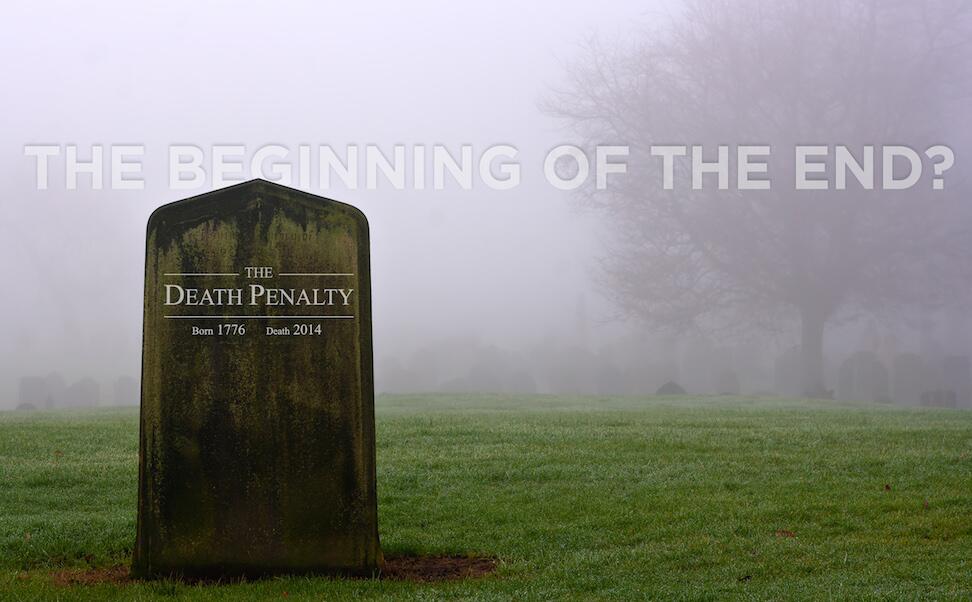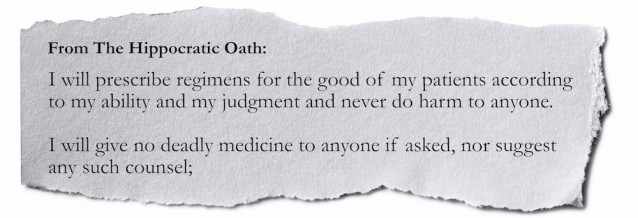Dennis McGuire struggled, choked, and gasped for air before he finally died, as his adult children watched on in horror. The state of Ohio used a never-before-used mix of drugs to kill him, and he appeared to slowly suffocate to death. Witnesses said the process took about 25 minutes, making it the longest execution since the state reinstituted capital punishment 15 years ago. When Kelsey Kauffman, a retired Indiana resident and progressive activist, saw the headlines about McGuire — whose death sparked widespread outrage about the nature of lethal injections in the United States — she wanted to do something in response. So Kaufmann started a petition through SumOfUs, a group that allows citizens to organize to advance social justice causes.
 “An eye for an eye” has been an article of faith among those who support the death penalty for as long as society has meted out the ultimate punishment. As experience bears out, though, executing another human being within the bounds of the law isn’t nearly as simple or straightforward as death penalty supporters would have us believe. To begin with, there’s the question of how to execute someone. That question breaks down into several other questions, all having a bearing on the moral rectitude of exterminating a life…for whatever reason.
“An eye for an eye” has been an article of faith among those who support the death penalty for as long as society has meted out the ultimate punishment. As experience bears out, though, executing another human being within the bounds of the law isn’t nearly as simple or straightforward as death penalty supporters would have us believe. To begin with, there’s the question of how to execute someone. That question breaks down into several other questions, all having a bearing on the moral rectitude of exterminating a life…for whatever reason.
What’s the best method? Shooting? Hanging? Gas? Lethal injection? Being ripped apart by wild dogs? Do we wish to employ the most “humane” method as possible? Is minimizing pain and suffering of the person to be executed important? And what of the mental and moral state of the executioner(s)? How are we to care for their emotional wellbeing given they’re being asked to take the life of another human being?
IS the death penalty truly retribution for the commission of a heinous crime- “an eye for an eye”- or is it merely state-sanctioned murder? Does “an eye for an eye” bring us down to the level of the person being executed? How can killing be justified, even with the power of the state behind it?
Kelsey Kauffman’s reaction to the horrifically inhumane display of justice that was Dennis McGuire’s execution was to examine how she could haste the end of the death penalty. She chose a tactic right out of the page of the anti-abortion movement’s handbook. After a couple generations spent beating their heads against the proverbial wall post-Roe v. Wade, the anti-abortion movement’s prospects were decidedly bleak. After some deliberation, leaders of the movement decided that a full-on frontal assault aimed at overturning Roe v. Wade was as unwise as it would be ultimately fruitless. They recognized and admitted that storming the castle wouldn’t wouldn’t work. Instead, they devised a strategy simultaneously ingenious and insidious. If they couldn’t dismantle Roe v. Wade directly, they’d surround the castle and starve its defenders into submission.
Thus we’ve seen the proliferation of laws designed with the express purpose of making abortion less available and accessible, the idea being that Roe v. Wade may well remain the law of the land in reality, but abortion in fact would be legislated out of existence. You can’t reach your destination if every road there is blocked. It’s meant accepting that the war against abortion is a long, protracted battle, with victory being the ultimate in delayed gratification. Before long, abortion will remain legal, but the infrastructure required to support it will have been hollowed out and destroyed via legislation passed in states across the country. The roads there will be blocked.
As sad and sick as this story is, there are lessons to be taken from it, lessons that may not always support the goals of the anti-abortion zealots, many of whom adamantly support the death penalty.
I’ll leave that blindingly obvious contradiction for another time.
Kauffman’s strategy is as simple as it is brilliant. If she can’t bring down the death penalty via frontal assault, she’ll surround the castle and starve its defenders into submission. She started by asking the American Pharmacy Association to add language to its code of ethics prohibiting its members from participating in executions.
It may seem like a strange way to respond specifically to McGuire’s case, but this one change could be an indirect method of inching the country toward putting an end to executions altogether. “The Association could help put a stop to the manufacturing and supplying of drugs used for lethal injections,” Kauffman’s petition, which garnered more than 36,000 signatures, explains, “and help end the use of the death penalty in the U.S. once and for all.”
“I was reading an article last July about an execution that was postponed in Georgia because the Department of Corrections wouldn’t give any information to the lawyers or the judges about what execution drugs were going to be used and where they had gotten them from. The article mentioned that pharmacists, unlike other medical professionals, are not banned from participating in executions. And I remember thinking — wow, that’s surprising,” Kauffman recounted in an interview with ThinkProgress. “I happen to be opposed to the death penalty. But I’m especially opposed to the medicalization of the death penalty.”
Currently, most major medical associations, including the American Medical Association, the American Public Health Association, the American Board of Anesthesiology, and the American Nurses Association prohibit their members from participating in executions. The philosophy behind this position is that participating in an execution is a violation of the Hippocratic Oath. As health professionals are bound by the Oath to care for their patients, participating in an execution has been deemed a violation of their ethical commitment. The American Board of Anesthesiology joined with this philosophy four years ago. The American Pharmacy Association has a code of ethics similar to other medical professional organizations, but its code of ethics as yet makes no specific mention of members participating in executions.
In 2011, the European Commission imposed tight restrictions on the export of certain drugs used in executions, citing ethical issues with the death penalty. A growing number of the European and Asian companies that make those drugs are now refusing to sell them for use in executions, too. This international opposition to capital punishment has left American states scrambling to get the drugs they need to continue executing inmates. And it’s meant that a small group of pharmacists are now participating in the executions.
By shrinking the number of available sources, Kauffman’s efforts may in the end result in something similar to what abortion activists are on the cusp of achieving. Executions may well remain legal, but the means to conduct them will be impossible to come by. Any such victory may prove short-lived, though, as states will likely return to older, less technologically advanced methods. Were this to happen, at least an argument could be made that such methods are inefficient, inhumane, and morally and ethically questionable.
So execution by gunfire may be exactly where the states that don’t seem likely to give up capital punishment, like Texas and Louisiana, are headed. But that could also make those states seem particularly extreme.
“Just getting lethal injections banned does not end the death penalty. We’re well aware of that,” Kauffman acknowledged. “You’ve got these outlier states that are really into the death penalty, and they’re just going to switch to something else. But they’re also going to make themselves even more isolated than they already are. I think at some point, they’re going to be so few in number that the Supreme Court is going to say that the prevailing morality in the nation is that we no longer do these executions.”
“Frontier justice” isn’t an idea that will die quietly. Or soon. Perhaps states will simply return to the days when the Chinese would shoot prisoners…and then bill the families for the bullets.
I’m not at all certain that returning to methods previously discarded as inefficient or inhumane is something that could be considered a step forward. If we’re to consider ourselves just and humane, can the “an eye for an eye” philosophy continue to be part of the moral landscape?


